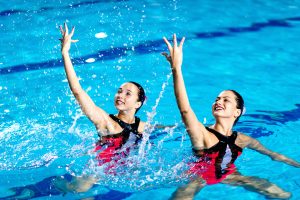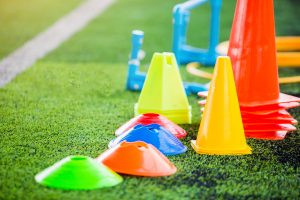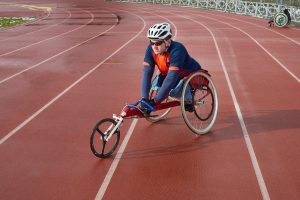As public health restrictions begin to lift across the country, the return to some form of sport participation will require adjustment and adaptation. As athletes return to sport, the virus is still present, and so is the uncertainty. The cancellation of sport events and the imposition of stay-at-home and physical distancing protocols over the last several months have caused many athletes to experience a loss of control, even a loss of their sense of identity (Koninckx & Teneau, 2010). These feelings of loss may continue long after returning to training.
With the return to sport, athletes may move through three phases of emotional challenges: managing the emotions associated with losing their bearings; making sense of the situation and giving meaning to the necessary change; and mobilizing energy and efforts to adapt to the new reality. This blog will discuss each phase and the implications for athletes and coaches.
Phase 1: Managing emotions
Athletes will experience different reactions and varying levels of comfort and motivation in returning to sport. This could range from joy and excitement to being with friends, returning to training, and looking forward to competition; to fear and anxiety relating to the risk of infection, the effects of detraining, or being behind competitors and teammates. It is important to acknowledge these differences and increase our emotional awareness of ourselves and others.

Expectations for the first few training sessions should be low and focused on reconnection and relationships. If small groups of athletes/coaches are training together, allow time for them to catch-up and reorient themselves to the training environment. This reconnection is important for emotion management and supports adaptation to the new training environment, which will likely be quite different compared to pre-pandemic.
It is also likely that athletes and coaches will experience some levels of mental fatigue once returned to their sport environment. The stress of adhering to guidelines, the new environment, and simply interacting with others following months of limited social interactions can lead to greater feelings of tiredness.
Phase 2: Making sense of the situation
The second phase is the reconstruction of meaning. If an athlete’s motivation and commitment have not been affected by the circumstances surrounding the pandemic, they are a source of energy to move forward. If motivation and commitment have been altered, feelings of incoherence, lack of efficiency and effectiveness, doubts, and mood swings may be experienced (Koninckx & Teneau, 2010).

At this phase, physical and technical assessments are important as athletes will return to sport at different levels than pre-isolation. If athletes have kept up with at-home exercises and conditioning, they are probably not as far behind as they expect. Athletes who spent time working on other aspects of their performance (e.g. mental or tactical performance) may find themselves ahead of the game once they return to their sport. Training should be gradual to avoid injury and overtraining, and both athletes and coaches must remain adaptable as they navigate changing restrictions and renew goals.
Some athletes will return and want to resume training at pre-pandemic levels; others may be questioning their return. It may be helpful for athletes and coaches to explore and discuss the athlete’s “why” – their profound reasons for pursuing their athletic career and goals.
Phase 3: Mobilizing energy and efforts
This third phase is that of new balance, when athletes return to focusing on performance. While specific target events may have shifted due to the pandemic, daily performance and process goals should still reflect the pursuit of long-term goals. It can be challenging to maintain motivation when the “finish line” is unclear. To help, athletes and coaches can refocus on short-term performance and process goals that are within their control that will ultimately support performance in the long-term. Athletes should maximize the use of available resources and expertise (e.g., integrated support teams, coaches) to ensure their training plan and objectives are well aligned with the physical, technical, tactical and mental aspects of performance.

At this phase (and any phase), athletes may find themselves struggling with doubts and decreased self-confidence. Coaches can help athletes challenge any false beliefs (e.g. “I’m so behind”) with facts by regularly measuring and tracking progress, and comparing results with pre-isolation data when helpful. By setting and evaluating short term goals, athletes can gain confidence and motivation moving forward, even in the uncertainty of tangible long-term goals.
Returning to training following isolation is similar to returning following a long-healing injury. Gradual reintegration is key. However, one major difference between returning from injury and returning from isolation is how athletes are likely to feel. Returning from injury, athletes might not be at 100%. However, returning from isolation athletes may feel the most rested or recovered they have in a long time. This may lead to athletes wanting to do too much, too soon.
Lastly, it is so important that we use the mental skills, creativity, and lessons learned during the COVID-19 public health restrictions and transfer them to our adapted training environment. As a result, a new reality will be created, confidence will return, and new ideas will emerge (Koninckx & Teneau, 2010; Deetjeans, 2005). Ultimately, we may realize that the pandemic has helped build athletes’ resilience and tolerance to uncertainty, developed transferable skills, and increased their wisdom.